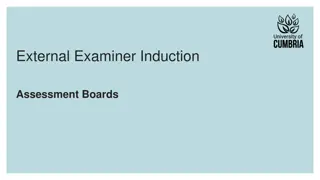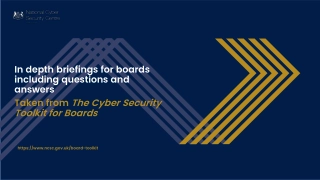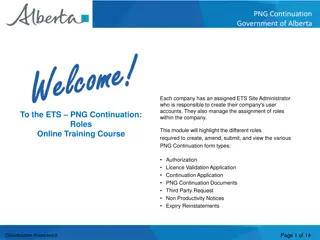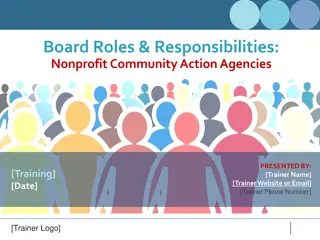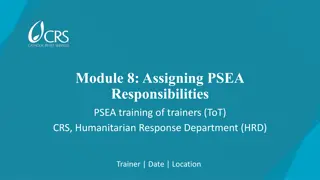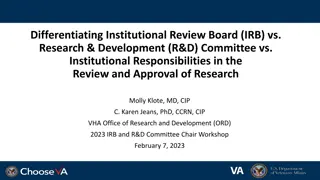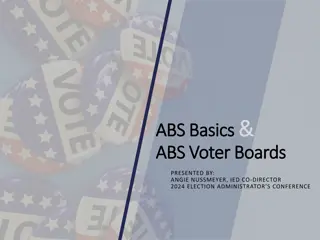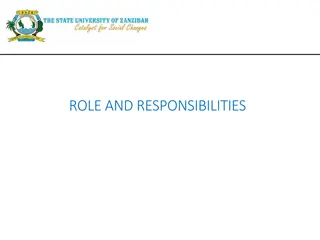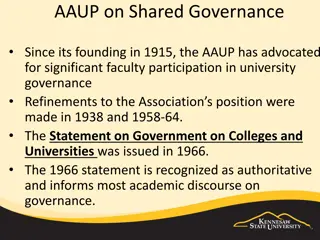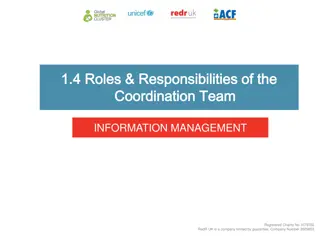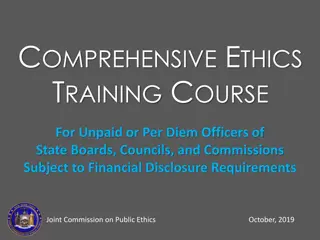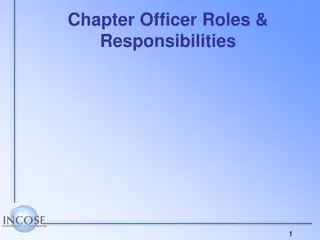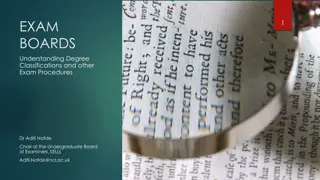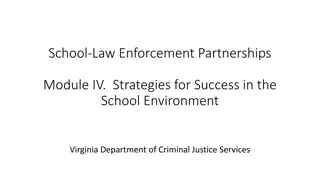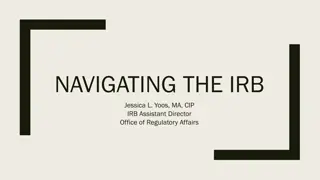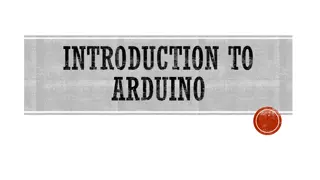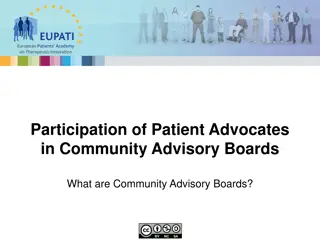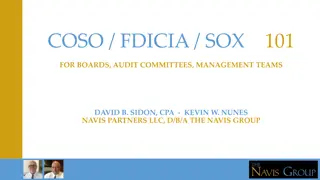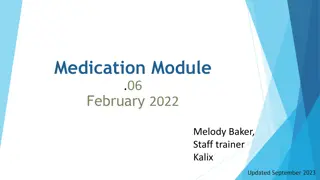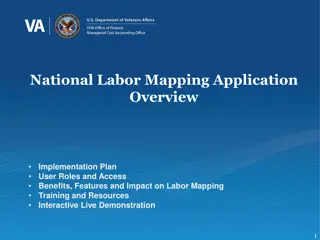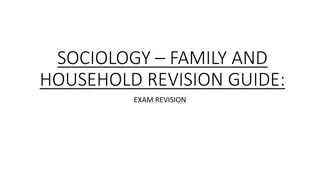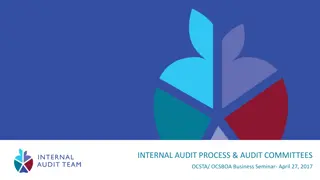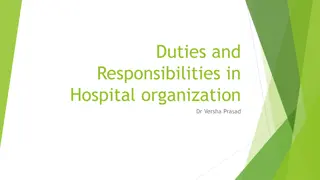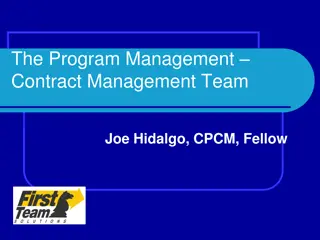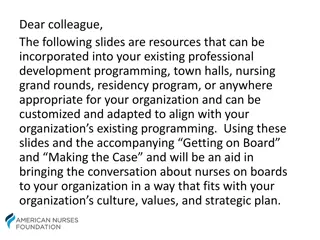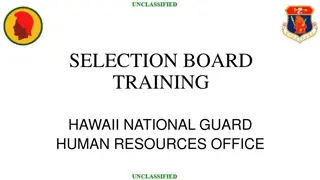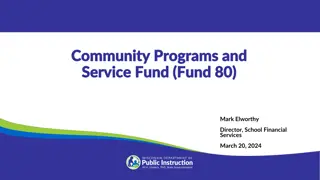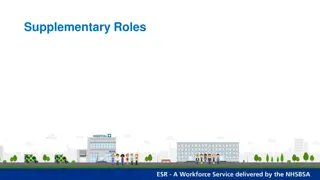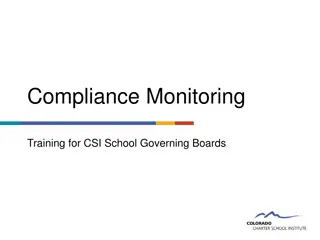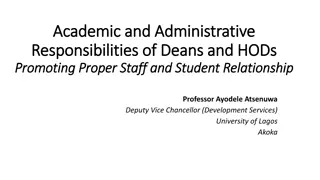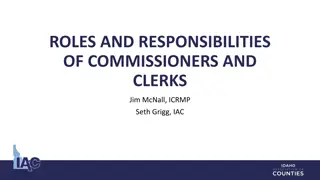Roles and Responsibilities of School Boards of Management
School Boards of Management play a crucial role in overseeing the effective governance and management of schools. Their responsibilities include ensuring a safe learning environment, upholding the school's values, setting policies, and planning for the future. Effective communication, clarity of roles, and high-quality interpersonal relations are key to their success. Boards must work in cooperation with the patron to provide appropriate education for students. Governance, oversight, and accountability are central to their primary role in school management.
Download Presentation

Please find below an Image/Link to download the presentation.
The content on the website is provided AS IS for your information and personal use only. It may not be sold, licensed, or shared on other websites without obtaining consent from the author. Download presentation by click this link. If you encounter any issues during the download, it is possible that the publisher has removed the file from their server.
E N D
Presentation Transcript
Boards of Management ROLES CHAIR & SECRETARY
A Boards Function Managing the school Ensure student, teacher and ETB representation on the Board Ensure the school is a safe place for students Oversee good school management Provide direction to the school Uphold the ethos of the school Provide support to the principal in the management of the school Assist in the development of a student centred teaching environment Determine the direction of the college Help each student to reach her/his full potential Uphold the characteristic spirit of the college, promote respect for the diversity of values, beliefs, traditions, and ways of life Understand its responsibilities and act accordingly Set school policy Assist in the planning for the future of the school
Education Act 1998, Section 15 (1) It shall be the duty of a board to manage the school/college on behalf of and in cooperation with the patron and for the benefit of the students and their parents and to provide or cause to be provided an appropriate education for each student at the school/college for which the board has responsibility
Each Board of Management must be effective to ensure the continuous improvement and transformation of educational services provided in its recognised schools
Key to being effective Clarity of roles Board interactions the chemistry Effective communication Being prepared for meetings High quality interpersonal relations Honesty & Integrity
The Boards primary role ..is one of governance Governance is about providing direction and oversight for a school while ensuring that the rights of all members of the school community are upheld and that the school is accountable for its work
An effective and dynamic board should be able to depend on the high quality interpersonal skills and effective communication skills of the Chair and Secretary working together.
The role role of the Chair Chair is critical in promoting effective effective governance governance
Role of the Chairperson The effectiveness of school governance depends significantly on the chairperson, so careful consideration should be given the appointment, Chairperson and the Secretary have important roles to play in creating the opportunities for good working relationships to evolve. (BOM Brief Guide p19)
Role of the Chairperson The Chair must; Establish and maintain a professional relationship with the Principal, characterised by mutual trust, respect and honesty, Have a comprehensive understanding of the business of the school, Make it safe for all members to express their views, Be able to cope with conflict and use conflict constructively. (BOM Brief Guide p19)
Operational Matters for the Chairperson The Chairperson should; Conduct the business of the board efficiently by planning effectively for board meetings ensuring that agenda, minutes and relevant documentation have been circulated in advance, Invite all members to participate in discussions and decision making ensuring a fair balance of participation at meetings, Progress the business of the board during and between meetings,
Operational Matters for the Chairperson (Cont.) Ensuring that appropriate reporting mechanisms are in place to the ETB, Ensuring that decisions are communicated through the agreed report, Communicating frequently with the principal reporting to the meeting on issues progressed, and/or decisions taken between meetings, Ensuring training opportunities are availed of by the Board.
Operational Matters for the Chairperson (Cont.) Conduct and control the meeting: Watch timing or assign someone to this Adjudicate when and as necessary Effect compromise on occasion Close each item Ensure action is clear By whom and by when Check that the minutes are produced accurately and in timely manner
Commitment The Chairperson is required to attend all meetings of the Board of management and has discretionary power to direct the Secretary to summon a special meeting. In 2013 the ESRI reported that chairpersons of school boards were asked how much time they spend per week on school management/governance issues. Across all the chairpersons surveyed, 60% spend 1-2 hours per week on governance issues with 26% spending 3-4 hours.
Role of the Chair in WSE A letter issues to the school principal, chairperson of the board of management, and trustees of the school or chief executive of the ETB. II. An agenda is issued to the chairperson of the board of management before the pre and post evaluation meetings. III. The Inspectorate Secretariat sends a copy of the evaluation report to the school principal, the chairperson of the school s board of management, and the chief executive of the ETB. I.
Role of the Chair in WSE On receiving the evaluation report, the chairperson of the board of management or a person authorised by him or her should provide a copy of the report to each teacher in the school (including teachers shared with other schools, if relevant) each member of the board of management. When the report is issued the principal and the chairperson are invited to draw the attention of the Inspectorate to any errors of fact in the evaluation report. The factual verification form should be returned to the Inspectorate Secretariat by the principal or the chairperson of the board of management within twenty school days of the date of issue of the report.
Role of the Chair in the follow up of Reports Ensure follow up and regular reports on the points raised in the WSE. The Chairperson will also be notified of any subject inspections and the chairperson and the principal will ensure appropriate follow up on these reports. Annual board evaluation is regarded as a principle of good corporate governance. As the board is required to take responsibility for governing its own activity, self-evaluation plays an important role in the overall assessment
The Leaders Duties Jay, A. Harv Bus Rev 54:43, 1976 Control the over-talkative Draw out the silent (whether diffident or hostile) Protect the weak Encourage discussion on the clash of ideas Watch out for the suggestion-squashing reflex (suggestions are easy to ridicule) Come to the most senior people last Close on a note of achievement
Ending the Meeting Spend 5-10 minutes summarising key decisions/next steps Decide on matters to be included in the Agreed Report End on time Shows respect for attendees Nobody ever complains about ending on time The role of the chairperson of the school board is critical in promoting effective governance practice.
Secretary to the Board The Principal as Secretary to the Board (the DP in his/her absence) Prepares the agenda in consultation with Chair Issues notice of meeting to all members and Chief Executive Agrees dates for meetings with Chair Ensures notice for BOM meetings include Draft copy of minutes of previous meeting Draft agenda Draft policies for review / adoption
Secretary to the Board contd Seven days notice of meetings given to Board members and the Chief Executive Recording secretary Briefs BOM members on the various items for discussion Receives and deals with correspondence of the Board Convenes, in consultation with the Chair, emergency meetings Forwards Minutes to ETB
Scheduling Meetings Five meetings per year (recommended) - Term One before midterm - Term One between midterm & Christmas - Term Two between January & midterm - Term Two between midterm & Easter - Term Three before Summer
Sample Agenda 1. 2. 3. 4. 5. 6. 7. 8. 9. 10. 11. 12. 13. 14. 15. Welcome * Minutes of Previous Meeting* Matters Arising from Minutes* Correspondence* Principal s Report* Safeguarding Report* Report:Anti Bullying Procedures** School Plan/Annual Priorities (1st BOM Meeting of School Year) Financial Report * Policies for review or development as appropriate Parents Council Report Student Council Report /Presentations as appropriate Annual Report (last BOM Meeting of School Year) AOB Date of next Meeting
Minutes - protocol Recorded and maintained by the Secretary Names of attendees and absentees to be recorded in Minutes of each meeting Record of decisions taken To be formally adopted (proposed & seconded) Circulated in advance to members Discretion to be observed in the recording Draft until adopted by the ETB Board Within seven days after every meeting a copy of the draft Minutes along with a copy of the adopted Minutes of the previous board meeting to be forwarded to ETB Will be requested to view by Inspectorate in a WSE / MLL



